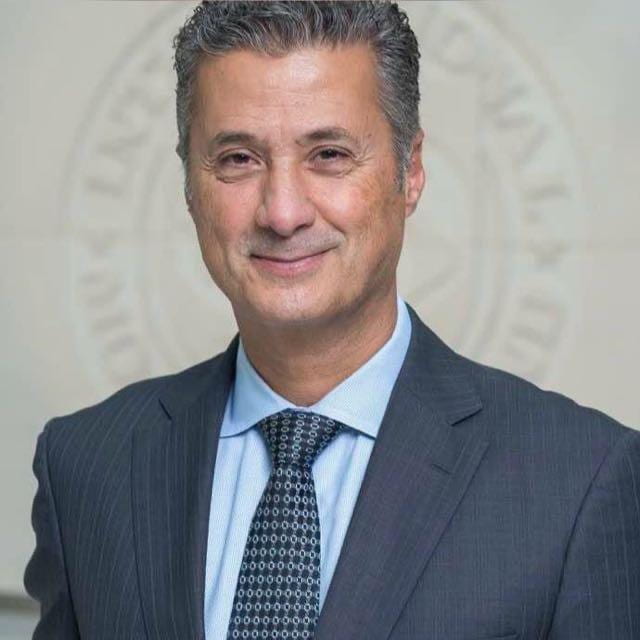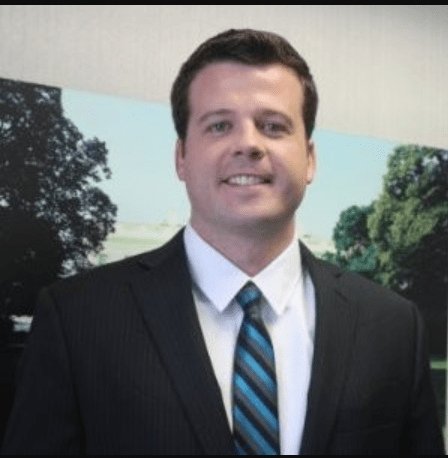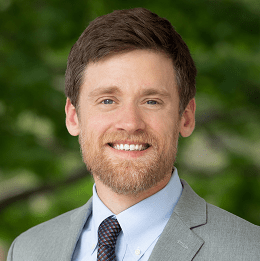The Business Strategy & Decision-Making Program hosts free monthly events for our community to network, learn from business leaders across a variety of industries, as well as present opportunities to develop thought-leadership skills. See below for our upcoming schedule.
Talk on October 21, 2020: The Value of Nature to Our Economic Well-Being
On October 21, 2020, Ralph Chami presented a 1-hour presentation called “The Value of Nature to Our Economic Well-Being” followed by Q&A.
For the longest time, humans have assumed that they are separate from the natural world and that nature provides infinite commodities. These two assumptions helped fuel the industrial revolution, but at the same time, resulted in the abuse of nature and in the climate crisis. We need a new paradigm, a new way of thinking which recognizes that humans are part of the natural world and that nature is a finite input into our lives and livelihood. This realization—of the value of nature—allows us to develop a framework for natural resource valuation that also directly addresses the fundamental collective action problem in environmental protection.
Ralph highlights how their valuation framework uses the lessons of behavioral economics to create values that individual decision makers find credible and relatable, in addition to stimulating excitement or concern that is essential to prompting action around environmental issues. He then discusses how to apply this framework to value forest elephants in Africa and great whales that are found off the coasts of Brazil and Chile. The values they estimate for individual members of these species are significant: $1.75 million per forest elephant and an average of $2 million per whale.
He then discusses how their valuations lead to new designs for environmental preservation and restoration policies. Finally, he sketches how we can build a new economy that partners with the natural world to ensure a sustainable, inclusive and nature-friendly economic growth.
Presenter Biography

Ralph Chami is currently Assistant Director in the Institute for Capacity Development (ICD), International Monetary Fund, where he oversaw the development and implementation of the internal economics training program for all IMF economists as well as the revamping of the Institute’s external training program for officials from member countries. Most recently, he was Assistant Director and Division Chief in the Middle East and Central Asia Department where he oversaw surveillance and program work on fragile states: Egypt, Libya, Somalia, Sudan, South Sudan, and Yemen, and was Mission Chief for Libya and Somalia.
He is the recipient of the 2014 IMF Operational Excellence Award for his work on Libya. Previously, he was the Chief of the Regional Studies Division, where he oversaw regional surveillance of 32 countries in the Middle East, North Africa and Central Asia regions, and the production of the Regional Economic Outlook. Prior to that, he was the Chief of the Middle Eastern Division of the IMF Institute where he oversaw capacity development in that region. He joined the IMF in 1999. From 1991 till 1999, he was on the faculty of Finance in the Department of Finance, University of Notre Dame in Indiana. He also served as a consultant to the World Bank, and to the private sector in the US.
Ralph Chami has a BS from the American University of Beirut, an MBA in Finance and Statistics from the University of Kansas, and a Ph.D. in Economics from the Johns Hopkins University. His areas of specialization are: banking regulation and supervision, financial markets, remittances, and climate. His hobbies include music and yoga. Ralph is a semi-professional guitarist for over 40 years

Strategy Talk on June 4, 2020: Strategic Challenges Facing Small Businesses & Policy Implications
On June 4th, 2020, Patrick Delehanty presented his Strategy Talk “Strategic Challenges Facing Small Businesses & Policy Implications”.

Patrick is the Director of Economic Research for the US Small Business Administration Office of Advocacy. He will speak with us about his experience in the policy world and how small business economic research can inform sound policymaking and address strategic concerns of small businesses across the U.S. His presentation lasted 45 minutes and was followed by a Q&A session.
Strategy Talk on April 29, 2020: Pricing Strategies for Executives and Entrepreneurs *Rescheduled*
We had plans to host alumnus and author of “The New Invisible Hand“, Kyle T. Westra on March 13th, but the event was unfortunately canceled due to the rapidly changing environment related to COVID-19.
However, we were pleased to announce that Kyle agreed to present his Strategy Talk in a webinar format on April 29th, 2020!

From a business strategy perspective, we teach that firms should avoid competing on price because that can ultimately lead to a “race to the bottom”. However, strategies concerned with pricing can be quite nuanced in this digital age where information is plentiful for both consumers and competitors.
Kyle discusses how pricing strategies can be approached in the real world through the lens of his book, “The New Invisible Hand”. His presentation lasted 1 hour and was followed by a Q&A session.
Strategy Talk on February 13, 2020: The Strategies in Consulting
This Strategy Talk presented by DePaul University’s Business Strategy & Decision-Making Program hosted a diverse panel of consulting professionals to discuss the basics of consulting in their areas and how they leverage strategic frameworks for their clients. The panel was followed by a networking hour with small plates and drinks.
Panelists (Industry Specialization)
Kristy Nittskoff of Vista Consulting (Human Resources)
Admira Ibisevic of Illumia Consulting (Organizations & Leadership)
Sanel Kostic of Illumia Consulting (Organizations & Leadership)
Matthew DalSanto of Winston and Strawn (Antitrust)
Kate Moberg of Berkeley Research Group (Strategy & Operations)
Amy Lewis of Berkeley Research Group (Data Privacy & Information Governance)
The event was held at:
Lewis Center
25 E Jackson Blvd
Room 1001
Chicago, IL 60604
The panel was from 5:30 pm to 7:00 pm. A networking opportunity immediately followed the panel.